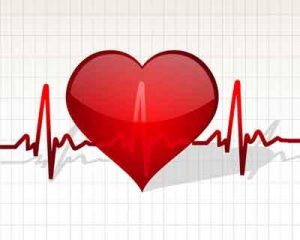- Home
- Editorial
- News
- Practice Guidelines
- Anesthesiology Guidelines
- Cancer Guidelines
- Cardiac Sciences Guidelines
- Critical Care Guidelines
- Dentistry Guidelines
- Dermatology Guidelines
- Diabetes and Endo Guidelines
- Diagnostics Guidelines
- ENT Guidelines
- Featured Practice Guidelines
- Gastroenterology Guidelines
- Geriatrics Guidelines
- Medicine Guidelines
- Nephrology Guidelines
- Neurosciences Guidelines
- Obs and Gynae Guidelines
- Ophthalmology Guidelines
- Orthopaedics Guidelines
- Paediatrics Guidelines
- Psychiatry Guidelines
- Pulmonology Guidelines
- Radiology Guidelines
- Surgery Guidelines
- Urology Guidelines
City noises disrupt heartbeat, may cause cardiac disease: Study

London: Fluctuating noises from busy city streets and town centres disturb normal heart rhythms and could trigger serious cardiac problems, scientists warn.
Researchers from Nottingham Trent University in the UK found that constant changes in noise - even at low levels - had an immediate and disruptive effect on normal heart rates.
The findings show that everyday surroundings could have wider implications for long-term health, researchers said.
For the study published in the journal Information Fusion, shoppers were asked to wear mobile body sensors to monitor their heart rates as they moved about Nottingham city centre for 45 minutes.
"We found that rapid changes in noise resulted in rapid disturbance to the normal rhythm of participants' hearts," said Eiman Kanjo from Nottingham Trent.
"If this pattern is repeated regularly then there is a danger it might lead to cardiovascular problems," Kanjo said.
The study is the first to use sensors to model the short-term impact that city environments can have upon the human body, the 'Telegraph' reported.
The researchers also found that air pressure had an effect on heart rate as well as body temperature.
Environmental data including noise, air pressure and light levels were compared to data from participants relating to heart rate, body temperature and movement and changes in the electrodermal activities of the skin.
None of the participants had heart problems, but the researchers say it would be useful to study whether people with heart conditions suffered a greater impact.

Disclaimer: This site is primarily intended for healthcare professionals. Any content/information on this website does not replace the advice of medical and/or health professionals and should not be construed as medical/diagnostic advice/endorsement or prescription. Use of this site is subject to our terms of use, privacy policy, advertisement policy. © 2020 Minerva Medical Treatment Pvt Ltd